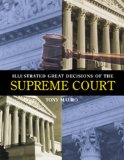On Wednesday January 23rd, Brooklyn Law School students can join NYCs Diversity Committee at Legal Services NYC’s Annual Open House. The event offers students an opportunity to learn about the important work done at Legal Services NYC and to meet the attorneys in that office. The program consists of brief staff presentations about our vital work and innovative projects. Each Legal Services NYC program will have a table staffed by an attorney who is available to meet with law students. Leadership from the various offices will attend the event. A reception with light refreshments will follow the program and allow for students to meet and network with staff attorneys and senior leaders.
The program starts with a session from 4:30pm to 5:30pm on Networking and Tabling, followed by a session from 5:30pm to 6:15 pm with a welcome by Raun Rasmussen, Executive Director of Legal Services NYC. To attend, RSVP by January 17th to diversitycommittee@ls-nyc.org. The event takes place at Brooklyn Law School’s Forchelli Conference Center, 205 State Street, 22nd floor, Brooklyn, NY.






